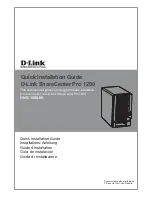
10
Chapter 1: Introduction
Configuration Options
Ultra Riser Cards
Ultra Riser cards provide network connections and other capabilities. The customer must
choose one when purchasing the system.
Ultra Riser Networking Options
LAN Ports
Part Number
Description
No NIC
AOC-2UR668G4
Two PCIe 4.0 x16 and PCIe 4.0x8 (in x16, internal)
Two 10GBaseT AOC-2UR68G4-i2XT
Two RJ45, Intel X710-AT2, PCIe 4.0 x8 (in x16, Internal),
PCIe 4.0 x8 (in x16), PCIe 4.0 x16
Four 10GBaseT
(two SFP+)
AOC-2UR68G4-i4XTS
Two RJ45 and two SFP+, Intel X710-TM4, PCIe 4.0 x8
(in x16, Internal), PCIe4.0 x8 (in x16), PCIe 4.0 x16
Two 25GbE
AOC-2UR68G4-m2TS
Two 25GbE, two SFP28, Mellanox ConnectX-6, PCIe 4.0 x8
(in x16, Internal), PCIe 4.0 x8 (in x16), PCIe 4.0 x16
WIO Riser Cards
Several customer choices are available for other riser cards. See the
Expansion Slots and
Riser Cards
section in this chapter for details.
Storage Protocols
The storage drive bays can support SATA, SAS, and NVMe in any combination. To enable
SAS and NVMe, additional hardware is required. Once the supporting hardware is installed
for a selection of bays, drives of any storage protocol type can be inserted.
SATA
– The default configuration supports up to twelve SATA drives. (Cables only)
SAS
– An add-on controller card and cables can support up to twenty-four SAS (and SATA)
drives.
NVMe
– System supports up to twenty-two NVMe drives. The motherboard supports up to
ten NVMe drives. Support for more than ten requires cables and retimer cards. Ten or fewer
NVMe drives require a cable kit only.
Power Supply Options
Power Supply Module Options
Watts
Part Number
80Plus Level
1600
PWS-1K62A-1R (default)
Titanium
2000
PWS-2K08A-1R
Titanium
1300 DC
PWS-1K30D-1R
Not applicable











































